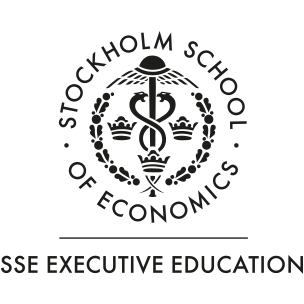Interview with Lina Jorheden at Atlas Copco in East Africa
Lina Jorheden, who participated in the International Manager Program at IFL in 2013, was recently named “Female leader of the future” by the managers’ association Ledarna. She currently works as Country Manager for Atlas Copco with responsibility for the Mining and Rock Excavation business in East Africa. She lives in Nairobi but travels often in the region, since her organization covers 14 countries. Customers work in mining, construction, geothermal energy and well-drilling.
Tell us about your job and the challenges you face in East Africa.
A large part of my job is working out how our relatively small organization can cover a vast and varied region in the best way. In most of the countries we work closely with distributors to reach the market, especially in countries which are either too small to make it worthwhile to establish Atlas Copco offices, or where foreign companies cannot operate without local partners.
Since metal prices continue to fall and the mining industry globally has not yet recovered, there is increasing pressure to deliver cost-effective solutions, while few new investments are being made. A big challenge is to maintain a long-term perspective – since the region has huge potential – without taking on too much risk. Many of the countries have large mineral deposits, which they haven’t yet been able to realise, because of a lack of funds, political instability, poor infrastructure etc.
The area we cover includes some of the world’s poorest countries and some are also affected by terrorism and civil conflict. But some of the worlds’ fastest growing economies are also here, with all the opportunities and challenges that brings. To take advantage of the potential we need to develop local expertise and to work with our entire product portfolio. Geothermal energy and well-drilling are very interesting segments, where we are able to spread the risks and to align our work closely with countries’ own development plans. Another important focus is on ensuring that both our local organizations and our distributors have the necessary knowledge, tools and support from Atlas Copco’s global organization, so that we can serve our current and future customers in the best possible way.
At what stage in your career did you choose to participate in the IFL program?
I was Finance Manager in Tanzania with a background in treasury and finance but I wanted to change direction and to have more direct contact with customers and responsibility for a larger organisation. The SSE Executive Education program was a way to broaden my skills and to become more confident as a leader. Soon afterwards I became Country Manager.
Did the program meet your expectations?
Yes, absolutely – even though I had high expectations. My manager had been on the program several years before and recommended it. The International Management Program (IMP) is the best training program I’ve been on: well-structured and practical. It provided me with useful tools and important insights about myself and my environment. In addition we had really good exchanges within the group and it was enriching to work with people from different countries, different companies and different specialisms.
What has been most useful for you?
It’s difficult to pinpoint anything specific. I feel more confident in my role and I have tools to use when I’m stuck or need a new perspective on challenges and problems. I also reached a better understanding of how I work and how I need to adapt myself to different personality types and traits.
What was it like to work with others in the group?
The work with the other participants was one of the reasons I thought the program was so good. Although we had some things in common we also represented a wide range of perspectives. Since there was time for reflection and open discussion our work together was very dynamic and worthwhile.
Did the program change you as a manager?
I became more confident but also more creative. I no longer feel I need to have all the answers: together with my team we can find good solutions. I’ve also become better at communicating and taking time to get everyone on board. With the confidence and the tools I got from the program I’ve been better able to handle those difficult situations that leaders face from time to time.
Has your employer benefitted from the program?
Yes, I think so. Since I became Country Manager, right after the program finished, we’ve increased both turnover and profitability. At the same time the employee survey shows that people are more satisfied at work than ever before. Part of the explanation lies in the new tools and approaches I took from the IMP, which I’ve used locally.
What advice would you give to future program participants?
The program is an investment in you and in your leadership, so make sure that you focus fully on the program and try to switch off from what is happening at home. Take time to reflect and try to bring many aspects of yourself into play. How can I use the learning? What is relevant for my daily work? Make notes! When you’re in the middle of everything, many things seem obvious. You discuss and get new insights all day long, but when you’re back at the office it can sometimes be difficult to remember what you were thinking when you were wrapped up in the program.
What advice would you give to someone wondering about a career abroad in Africa?
What are you waiting for? Do it!
I moved to Tanzania for the opportunity to work more closely with our customers and to get a better understanding of Atlas Copco’s core business. My time horizon was two years. Now I’ve lived in East Africa for more than five years and I enjoy it so much that it’s going to be difficult to leave.
In work terms, it’s exciting to address a market which is developing. Our products contribute to infrastructure development, access to water and energy provision – basic needs in a developing country. Besides, there’s room to be creative and to build things up from scratch. Fixed structures, routine ways of working and we’ve-always-done-it-this-way thinking are absent, which allows for a dynamic working environment in which you can really make a difference.
The next program starts on 5th September. Read more about the International Management Program below.


